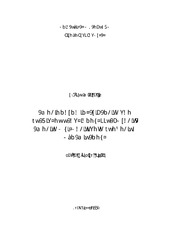Приказ основних података о документу
Emotional intelligence as a predictor of reactivity and emotion regulation in emotionally disturbing situations
Emocionalna inteligencija kao prediktor reaktivnosti i regulacije emocija u situaciji koja provocira uznemirenost
| dc.contributor.advisor | Altaras-Dimitrijević, Ana | |
| dc.contributor.other | Trebješanin, Žarko | |
| dc.contributor.other | Jolić Marjanović, Zorana | |
| dc.contributor.other | Dimitrijević, Aleksandar | |
| dc.creator | Mijatović, Luka | |
| dc.date.accessioned | 2021-06-09T13:08:09Z | |
| dc.date.available | 2021-06-09T13:08:09Z | |
| dc.date.issued | 2018 | |
| dc.identifier.uri | http://eteze.bg.ac.rs/application/showtheses?thesesId=5926 | |
| dc.identifier.uri | http://nardus.mpn.gov.rs/handle/123456789/9766 | |
| dc.identifier.uri | https://fedorabg.bg.ac.rs/fedora/get/o:18032/bdef:Content/download | |
| dc.identifier.uri | http://vbs.rs/scripts/cobiss?command=DISPLAY&base=70036&RID=50177295 | |
| dc.identifier.uri | http://rfasper.fasper.bg.ac.rs/handle/123456789/22 | |
| dc.description.abstract | The concept of emotional intelligence (EI), defined both as an ability and as a personality trait, has been supported as meaningful by numerous studies in the field of psychology of emotions. Both ability and trait EI have demonstrated predictive validity regarding criteria from different psychological domains. Still, investigating the effect of the two EIs on ongoing (vs. retrospectively reported) emotional experience and reactions would additionally contribute to their behavioral validation. Specifically, the question may be raised whether ability and trait EI predict emotional reactivity in emotionally disturbing situations, and how they relate to the use of adaptive and maladaptive emotion regulation strategies. Two studies have been conducted: the first included 306 and the second 190 predominantly female participants. In both studies participants were divided into two groups. The first group was exposed to stimuli designed to provoke negative emotions in view of the pervasive threat of skin cancer (i.e., self-related distress), whereas the second was presented stimuli which induce negative emotions as a result of learning about somebody else’s suffering from the illness (i.e., empathy-driven distress). The two studies differed in the format of the stimuli: the first used video clips, and the second employed newspaper articles. Emotional reactivity was operationalized in two ways: 1) as the difference in the intensity of negative affect before and after stimuli exposure; and 2) as the pattern of change in both positive and negative affect, identified by cluster analysis. Data on ability and trait EI, the basic personality traits, as well as a on wide range of (mostly cognitive) emotion regulation strategies were also collected... | en |
| dc.description.abstract | Brojna istraživanja u oblasti psihologije emocija opravdavaju upotrebu koncepta emocionalne inteligencije (EI), operacionalizovane i kao sposobnosti i kao crte ličnosti. Oba konstrukta su dobila potvrdu o prediktivnoj valjanosti u različitim psihološkim domenima. Ispitivanjem povezanosti različitih operacionalizacija EI sa emocionalnim doživljavanjem i reagovanjem u realnim kontekstima bi se dodatno doprinelo njihovoj bihejvioralnoj validaciji. Konkretnije, postavlja se pitanje mogućnosti EI kao sposobnosti i kao crte da predvidi emocionalnu reaktivnost u situaciji indukovanog afekta, kao i povezanosti ovih varijabli sa korišćenjem adaptivnih i maladaptivnih strategija regulacije emocija. Sprovedene su dve studije: prvom je bilo obuhvaćeno 306, a drugom 190 ispitanika pretežno ženskog pola. U obe studije su ispitanici bili podeljeni u dve grupe. Prva grupa je bila izložena stimulusima dizajniranim tako da izazovu osećanje uznemirenosti za sebe, u vidu strepnje za sopstveno zdravlje, dok je kod ispitanika iz druge grupe nastojano da se izazove osećanje uznemirenosti za druge, poput saosećanja sa zdravstvenim stanjem drugih. Razlika između prve i druge studije se ogledala u formatu stimulusa: u prvoj studiji su korišćeni videoklipovi, dok su okviru druge ispitanici čitali novinske članke. Emocionalna reaktivnost je operacionalizovana dvojako: 1) u vidu razlike u intenzitetu negativnog afekta pre i posle izlaganja stimulusa, i 2) putem obrazaca reaktivnosti kojima su obuhvaćena i pozitivna i negativna osećanja, a koji su izdvojeni klaster analizom. Prikupljeni su podaci o crtama ličnosti, emocionalnoj inteligenciji kao crti i kao sposobnosti, kao i o širokom spektru pretežno kognitivnih strategija regulacija emocije... | sr |
| dc.language | sr | |
| dc.publisher | Univerzitet u Beogradu, Filozofski fakultet | |
| dc.rights | openAccess | |
| dc.source | Univerzitet u Beogradu | |
| dc.subject | trait EI | en |
| dc.subject | ability EI | en |
| dc.subject | emotional reactivity | en |
| dc.subject | emotion regulation strategies | en |
| dc.subject | negative affect | en |
| dc.subject | crta EI | sr |
| dc.subject | sposobnost EI | sr |
| dc.subject | emocionalna reaktivnost | sr |
| dc.subject | strategije regulacije emocija | sr |
| dc.subject | negativan afekat | sr |
| dc.title | Emotional intelligence as a predictor of reactivity and emotion regulation in emotionally disturbing situations | en |
| dc.title | Emocionalna inteligencija kao prediktor reaktivnosti i regulacije emocija u situaciji koja provocira uznemirenost | sr |
| dc.type | doctoralThesis | |
| dc.identifier.fulltext | http://rfasper.fasper.bg.ac.rs/bitstream/id/325/19.pdf | |
| dc.identifier.rcub | https://hdl.handle.net/21.15107/rcub_nardus_9766 | |
| dc.type.version | publishedVersion |


